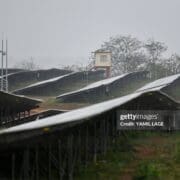iQor CXBPO™ Redefines Customer Experience
NEWS AMERICAS, FORT LAUDERDALE, Fla., March 10, 2025: iQor today introduced the next generation of its brand promise, iQor CXBPO. The global company is setting a new standard for CX by delivering measurable business outcomes, seamless customer interactions, and operational scalability informed by its advanced data analytics platform. The company is disrupting traditional business process outsourcing by addressing key industry pain points and putting analytics at the center of its operating model.
Citing feedback from customers and prospects, iQor CXBPO promises a new approach to BPO partnerships:
Providing solutions tailored to each client’s unique needs
Integrating advanced analytics using proprietary data and LLMs to help clients better understand their customers and improve operations
Guiding clients from today’s baseline to the promise of AI-led service experiences
Improving service by applying technology and process at scale while lowering costs
“Today’s brands require more than traditional outsourcing—they need a CX partner that delivers measurable business impact,” said Chris Crowley, President and CEO of iQor CXBPO. “Legacy BPO models lack the flexibility, intelligence, and executional strength required for modern customer engagement. iQor CXBPO is changing the game by integrating AI-driven insights, human expertise, and operational excellence to help brands grow revenue, increase customer retention, and optimize efficiency.”
iQor CXBPO differentiates itself through its focus on expertise, execution, and technology evolution. This operating model leverages 30 years of experience navigating shifts in customer behavior and advances in technology. iQor CXBPO has built expertise across vertical industries and promises customized CX strategies tailored to each client, a key to its 90% customer satisfaction rating and average client tenure of 15 years.
With a commitment to building brand advocates, iQor CXBPO applies its proprietary analytics platform to deliver data-driven insights to its workforce and clients. The company’s AI-powered hiring, training, workforce management, and fraud protection enable high-efficiency scaling of operations by 300-500% and a high employee satisfaction rate of 88.8% for an exceptional customer experience.
A culture of continuous innovation fuels iQor CXBPO’s ability to evolve with customer expectations. The company harnesses the power of AI, automation, and data science to refine customer interactions, improve response times, and enhance service quality. Through technology-driven transformation, iQor CXBPO ensures its clients stay ahead of market shifts and customer demands.
iQor CXBPO supports more than 200 brands across industries including retail, telecom, financial services, healthcare, and technology. Clients benefit from personalized, data-driven CX powered by AI and automation; seamless omnichannel engagement across voice, chat, email, SMS, and social media; and cost-effective, performance-driven solutions that maximize return on investment while maintaining compliance excellence.
To learn more about iQor CXBPO, visit www.iqor.com.
About iQor CXBPO
iQor CXBPO is a trusted partner in intelligent customer experience solutions, delivering exceptional results for global brands. With 40,000 employees across 10 countries, we combine 30 years of industry expertise with cutting-edge AI-driven innovations to optimize customer interactions at every stage. Our agile, scalable solutions ensure seamless omnichannel engagement, driving loyalty and measurable business success. Recognized as a Great Place to Work® and a leader in CX excellence, we elevate performance through a people-first approach, operational expertise, and secure, technology-enabled solutions. Learn more at iQor.com.









